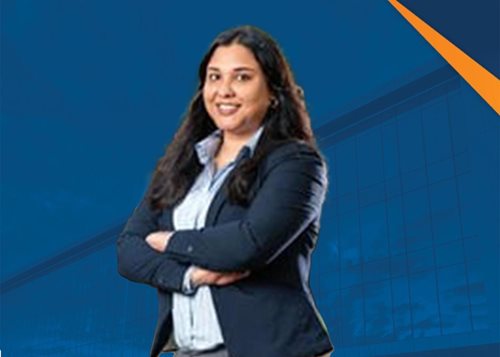Monday, Jul 28, 2025
• Jaelon Jackson :
By Jaelon Jackson
School of Social Work

PhD student, Priyanjali Chakraborty
For one PhD student, a lifetime of personal observations and a passion for social justice has guided her academic journey. While working on maternal and reproductive health initiatives in rural India, she witnessed how poverty, gender norms and limited health literacy prevented many women from accessing preventive care. That experience formed the reasoning behind a dissertation, which explores the intersection of family planning care and health literacy among low-income immigrant women in the United States.
Priyanjali Chakraborty’s dissertation, Unmet Family Planning Care and Health-Literacy Needs Among Low-Income Immigrant Women in the United States, uses a mixed-methods approach to examine how language barriers, provider communication gaps and cultural stigma contribute to unmet contraceptive care needs. Rather than assessing individual literacy levels, Chakraborty used receipt of contraceptive counseling as an indicator of access to essential reproductive health information.
Having earned a Bachelor of Arts in Political Science from St. Xavier’s College in Kolkata and Master of Arts in Women’s Studies from the Tata Institute of Social Sciences in Hyderabad in 2026, she ventured to receive her diploma in Human Rights Duties and Education from St. Xavier’s College.
Drawing from these academic foundations and years of experience managing reproductive health and economic empowerment programs in India, she pursued and earned her PhD in Social Work from the University of Texas at Arlington in July of 2025. Here, she conducted research focused on health literacy, immigrant women’s reproductive healthcare access and health disparities.“My work focuses on improving access to family planning and health literacy for women who are often overlooked,” she said. “Many newly arrived immigrant women face constraints similar to those I saw while working in India—economic challenges, gender norms, and a lack of culturally accessible information.”
Her academic and professional experiences have led her from the National Rural Livelihoods Mission in Rajasthan to CSR initiatives in Mumbai and grassroots volunteer work addressing disaster relief, mental health and educational access. As a multilingual speaker of Bengali, Hindi and Marwadi, Chakraborty brings a global lens to her scholarship.
Her committee chair, Dr. Genevieve Graaf, commended her for her scholarly excellence and the real-world relevance of her work.
“Priyanjali shows exceptional knowledge of the social problem she’s addressing and communicates it with clarity and purpose,” Graaf said. “Her dissertation is especially timely given the current policy climate where public funding for reproductive healthcare and immigrant services is increasingly under scrutiny.”
In addition to her dissertation, Chakraborty has contributed to seven peer-reviewed publications and presented her research at conferences hosted by the Society for Social Work and Research, the American Public Health Association, and others. She has participated in federally funded projects involving policy data, survey research and qualitative analysis. Chakraborty also serves as a student representative for the SSWR Doctoral Student Committee and the South Asian Social Work Educators Association.
She described her Ph.D. journey as both intellectually and personally transformative.
“One of the most rewarding parts was getting to study in the U.S.—to learn in a new culture, grow professionally and make lasting friendships,” she said.
Chakraborty will soon begin a tenure-track faculty position as an Assistant Professor of Social Work at California State University, San Bernardino. She plans to continue bridging research, practice and community engagement in the field of reproductive health equity.
“I hope my research helps shape more culturally responsive policies and healthcare practices,” she said. “I want to continue doing work that truly reflects the needs and lived experiences of diverse communities.”
To students starting their doctoral journeys, she offers this advice: “Pace yourself. Stay curious. Build community. This journey is hard—but it’s so much more meaningful when you don’t do it alone.”
